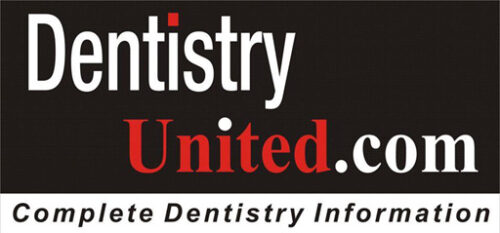The Role of Synthetic Patient Data in Shaping Dental AI
A memory from Mysore, and a vision for the future
When I was a young doctor, my mornings often began at Al Mansoor Clinic in Kalyangiri, Mysore. It was my father’s domain — Dr. Rahman, an alumnus of Osmania University, a veteran physician whose presence could calm both pain and panic.
The clinic smelled faintly of antiseptic and cardamom tea. Its furniture was solid, worn, and dignified — much like my father himself. Patients came not only for treatment but for the quiet assurance that their ailments would be met with both skill and sincerity.
Whenever a rare case walked in — an unusual symptom, an uncommon lab value — my father would pause, his eyes narrowing slightly, not with doubt but with recognition. Then he would say, almost like a storyteller recalling an old tale:
“I remember… in 1979, I saw a patient just like this. The fever was the same, the pulse faint… the recovery took time.”
Sometimes, if the memory needed confirmation, he would reach for his old ledger — its pages yellowed, but its ink still steady. Every line was a world of its own: names, findings, treatments, outcomes. A human database, curated over decades, each entry backed by lived experience.
I have never met another doctor with such a precise and enduring archive in his mind. And often I wonder: if a single human mind could hold such a library, what could technology do if it could learn to do the same — not for one lifetime, but for millions?
Synthetic Data: Giving AI a Memory Without Stealing One
In today’s digital era, synthetic patient data offers a way to give machines something like my father’s memory — but without compromising privacy.
Synthetic data isn’t real patient information. It is artificially generated, designed to mirror the patterns, variations, and complexity of actual clinical data, while stripping away anything that could identify a real person.
In dentistry, this can be transformative:
- Imaging → Training AI to spot subtle anomalies in CBCT scans or panoramic X-rays that are too rare for most clinicians to encounter in their careers.
- Diagnostics → Equipping systems to recognize uncommon jaw pathologies or rare enamel defects.
- Predictive outcomes → Modeling how different patient types may respond to an implant, aligner, or full-mouth rehab.
Where real-world datasets are small, incomplete, or biased, synthetic datasets can be vast, balanced, and tailored — representing a diversity of cases from every corner of the globe.
The Ethics and the Eye of the Practitioner
Yet, there is a truth I learned at Al Mansoor Clinic: data is not wisdom.
My father’s ledger was never a substitute for his judgment — it was a guide, a reminder, a companion to his clinical intuition. Likewise, synthetic data can sharpen AI, but it cannot replace the human instinct that notices a tremor in a patient’s voice, or senses hesitation in their description of pain.
For dentists, the future will be about partnership — letting AI trained on synthetic data offer suggestions, while we, the practitioners, remain the ultimate decision-makers.
A Memory I Wish I Could Build
If Al Mansoor Clinic had, alongside my father’s memory, the boundless capacity of synthetic data, how many more rare cases might have been recognized earlier? How many patients might have been spared prolonged suffering?
I wish I could integrate an AI model built upon my father’s notes — every precise observation, every quietly recorded recovery. A model I could consult when the pattern is unfamiliar, when my own memory hesitates. But my father is up in heaven now, and those pages live only in my mind.
Perhaps, one day, we will build such a memory again. Not to replace the human soul, but to honor it — ensuring that the wisdom of healers, past and present, remains alive in every diagnosis we make.
About the Author
Dr. Syed Nabeel, BDS, D.Orth, MFD RCS (Ireland), MFDS RCPS (Glasgow), is a clinician-scholar whose career spans over two decades at the intersection of orthodontics, neuromuscular dentistry, and digitally integrated diagnostics. As Clinical Director of Smile Maker Clinics Pvt. Ltd., he has pioneered a philosophy of care rooted in anatomical precision, occlusal neurophysiology, and contemporary AI-enhanced workflows. A Diplomate in Orthodontics from Italy and an alumnus of advanced programs at Various International Universiteis , Dr. Nabeel brings a globally benchmarked clinical acumen to the nuanced management of temporomandibular disorders, esthetic rehabilitation, and algorithm-guided orthodontics.
In 2004, he founded DentistryUnited.com, a visionary platform connecting over 40,000 dental professionals through peer learning and collaborative dialogue. His academic drive led to the launch of Dental Follicle – The E-Journal of Dentistry (ISSN 2230-9489), a peer-reviewed initiative now indexed in EBSCO, fostering interdisciplinary scholarship across clinical domains.
A prolific educator, he has contributed to UGC and national broadcast media as a subject expert and regularly speaks at scientific forums, favoring small-group, discussion-based formats that emphasize clinical realism over theoretical abstraction. His ethos remains steadfast: knowledge, when shared freely, multiplies in value. Dr. Nabeel continues to shape the future of dentistry through research, mentorship, and his enduring commitment to elevating practice standards in India and beyond.
